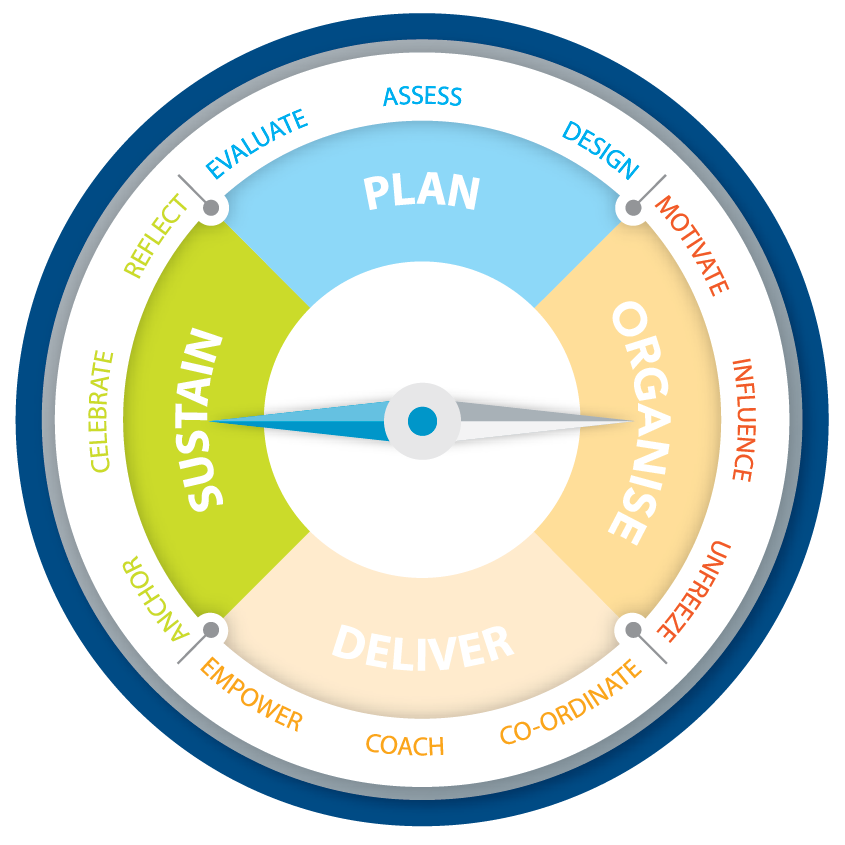
- Extrinsic - This type of reward is a tangible award, physically given to a person for accomplishing something. Examples could be: morning teas, certificates, pats-on-the-back, a gift, etc.
- Intrinsic - This type of reward is an intangible award of recognition, achievement or a conscious satisfaction. Because they are intangible, they often arise from within the person who is doing the activity or behaviour. Intrinsic rewards generally relate to the person's core values and touch a solidly held belief. A researcher once facetiously remarked that there was a social commitment gene that some people have…that allows them to commit to action that has no reward for themselves (perhaps an example of an intrinsic feel-good reward). Have a look at the core values handout and see if it is useful for your change initiative.
Ensure that you match the reward to the effort and do not ‘over-reward’ as this can be seen as false or patronising to team members leading to further distrust and resistance.
|
|
Acknowledging the incremental efforts, such as participation in workshops, forums and training is
as important as celebrating the big milestones.
|
Congratulate closure
Recognise the end of a change initiative or a milestone on the path, and celebrate the success of the change. Celebration assists team members to identify that the change has been completed and provides a symbol to make complex issues more understandable. It is a way to thank them for their efforts throughout the initiative. The celebration should be upbeat and positive, as it will create a lasting impression that future change will also be successful.
The top eight reasons why leaders should celebrate change wins:
- Reminds you of the goal you set and why you set it in the first place.
- Reminds you that a focused change approach and goal-setting process works.
- Motivates your team to continue delivering good work.
- Unifies the team around a positive outcome.
- Positions you and your team to concentrate on the positive rather than the negative.
- Builds momentum for you and your team.
- Allows you to connect with colleagues and co-workers, building rapport and good-will.
| ©1999 - 2026 Sandar Management Services Pty Ltd |
